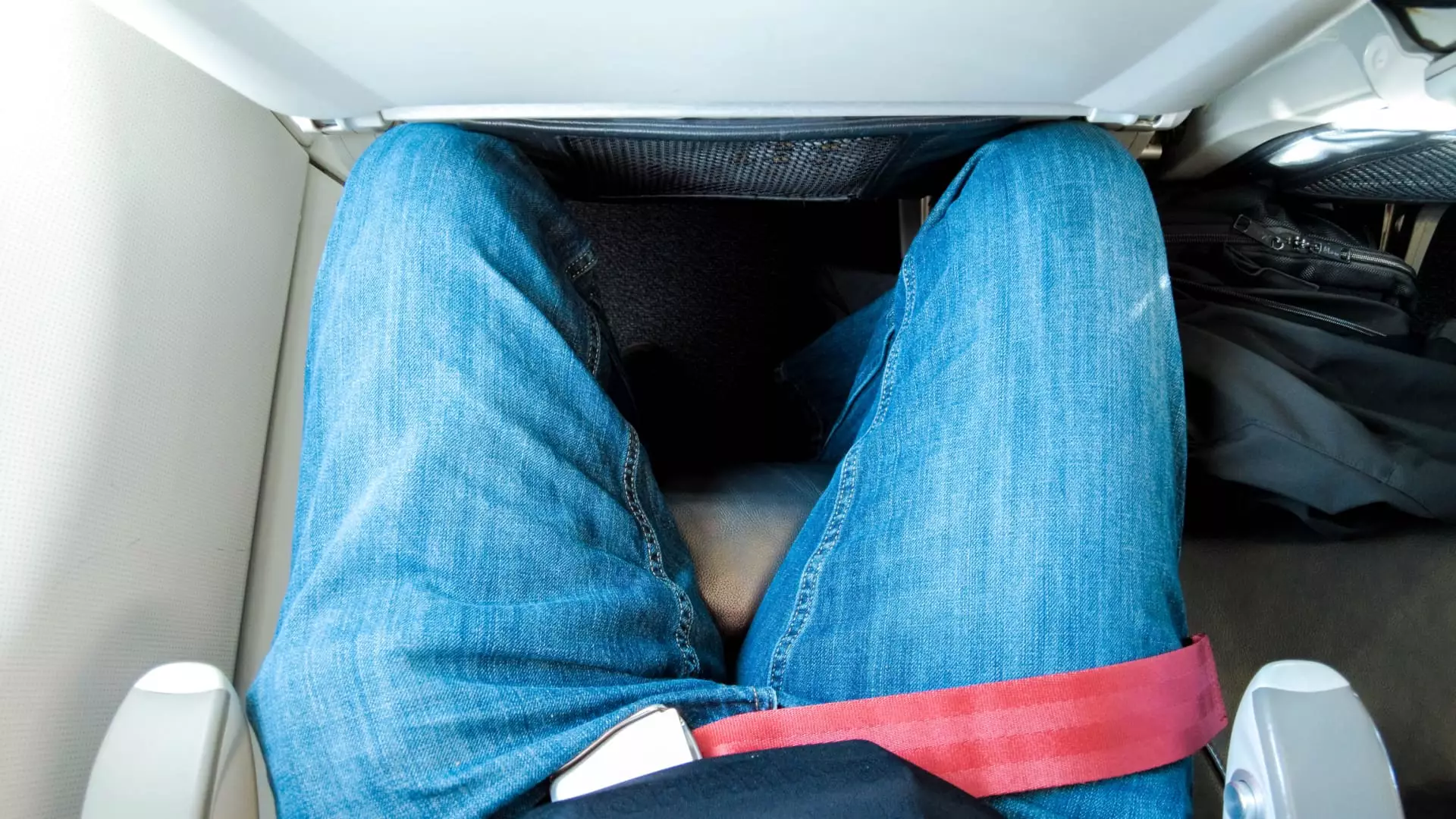In September 2023, a seemingly innocuous act on a long-haul flight escalated into a heated confrontation that thrust the complexities of air travel etiquette into the limelight. A couple onboard a Cathay Pacific flight from Hong Kong to London found themselves banned from the airline after a viral video captured their aggressive behavior towards a fellow passenger who had reclined her seat during the 14-hour journey. This incident highlights not just a singular chaotic experience but also the underlying tensions that can fester in the confined quarters of an aircraft.
Escalation of Etiquette Disputes
The video, posted on Xiaohongshu—often referred to as China’s version of Instagram—depicted the couple engaging in taunting gestures and physically interfering with the reclining seat of another passenger. Rather than opting for a civil approach to address their discomfort, they resorted to actions that many found disrespectful. This scenario isn’t merely about the act of reclining a seat but reflects deeper frustrations among travelers over personal space and comfort in increasingly cramped airline configurations. As airlines maximize profits by reducing seat pitches, the very notion of personal space becomes a contentious issue, exacerbating disputes like the one witnessed.
In the aftermath of the incident, Cathay Pacific issued a statement apologizing for the altercation and reinforcing their commitment to maintaining passenger safety and respect aboard their flights. They emphasized a zero-tolerance policy regarding behavior that disrupts the onboard experience, an essential message in the wake of rising tensions among air travelers. The airline acknowledged that two formal warnings had been given to the disruptive couple. However, this incident has ignited a wave of criticism on social media regarding the airline’s initial handling of the situation, raising questions about the effectiveness of their intervention.
Passengers Weigh In
Despite Cathay Pacific’s statements, many social media users expressed dissatisfaction with how the situation was managed. One prominent comment noted that the airline only acted decisively after other passengers intervened, pointing to a perceived trend of the airline not prioritizing the well-being of mainland Chinese travelers. Such sentiments echo the experiences of many who feel they face discrimination while traveling in a different cultural context, emphasizing how identity plays into the dynamics of air travel interactions.
The video also revealed fellow passengers labeling the couple as a disgrace to “Hong Kongers,” indicating a broader socio-cultural tension at play. The reference to being “mainlanders” further underlines the existing divide between residents of Hong Kong and mainland China, a rift that has been exacerbated by political unrest and cultural differences.
Delving deeper into the incident, it becomes evident that reclining seats on flights is a microcosm of a much larger debate surrounding personal boundaries and etiquette in shared spaces. While some passengers may feel entitled to recline their seats, others perceive the act as inconsiderate, especially in economy class where space is at a premium. The escalating discomfort among passengers is a direct indication of how modern air travel has become rife with ergonomic disputes.
Interestingly, the growing scrutiny surrounding in-flight behavior signifies a shift in expectations from airlines and passengers alike. As complaints of cramped spaces surge, so do discussions around what constitutes acceptable behavior. For example, many argue that prior communication and mutual agreement should precede any reclining, marking a more consultative approach to air travel interactions.
The Cathay Pacific incident serves as a cautionary tale about the challenges of navigating personal comfort in shared airline spaces. It has ignited discussion around how airlines can foster a more respectful environment for all passengers, balancing individual rights with communal sensibilities. As air travel evolves and passenger tolls increase, the need for clear communication and etiquette guidelines has never been more essential. Ultimately, the ability to travel without conflict hinges on our willingness to respect each other’s space, opinions, and pedestrian boundaries in an increasingly crowded sky.

